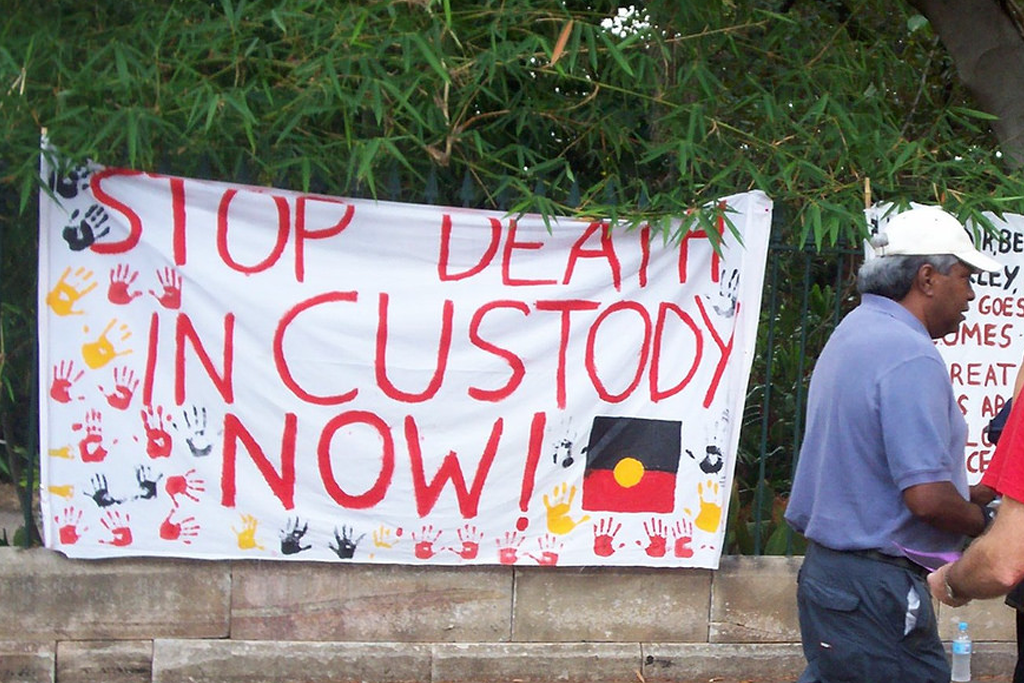Indigenous Australians Are Now More Likely To Be Imprisoned Than African Americans

Good morning Australia, get ready to feel ashamed: incarceration rates for Indigenous Australians are now higher than incarceration rates for African-Americans, in what a new report is calling the beginning of Australia’s “second convict age”.
New research released today by Labor MP and economist Andrew Leigh finds that while Australian incarceration rates have risen over recent decades – increasing by 130 percent since 1985 — Indigenous incarceration rates have risen more dramatically compared to the rest of the population.
The Australian incarceration rate for adults is currently 0.22 percent; for Indigenous adults, that figure jumps to 2.5 percent. Close to one in four Indigenous men born in the 1970s have gone to prison.
And no, this rise is not due to an increase in crime. Actually, Leigh’s research finds that crime rates in Australia have declined in recent years, suggesting that higher reporting rates, stricter policing, tougher sentencing laws and stricter bail laws are responsible for our growing prison population.
My research study out today finds that the Indigenous incarceration rate is now higher than the African-American imprisonment rate. Around one-quarter of Indigenous men born in the 1970s have gone to prison. https://t.co/71h6NgnvCr #ausecon #inequality pic.twitter.com/lGghklYyje
— Andrew Leigh (@ALeighMP) August 25, 2019
As Leigh puts it, “for young Indigenous men, the experience of imprisonment has become commonplace. Australia is entering a second convict age.”
It goes without saying that this is a serious problem. The problem of Indigenous deaths in custody is well-documented, but even those who survive imprisonment face serious consequences.
“Imprisonment reduces employment prospects, and has adverse health impacts,” Leigh explains. “Released prisoners have a high chance of being homeless, and many reoffend. Incarceration can have negative consequences for the 77,000 Australian children who have a parent in prison.” And then there’s the cost to taxpayers: billions of dollars spent imprisoning a growing number of people, despite decreasing rates of crime.
The report comes as a three-week inquest into the death in custody of Yorta Yorta woman Tanya Day is set to begin. Day was arrested for public drunkenness after she was found asleep on a Melbourne train in December 2017, and was taken to the cells at Castlemaine police station, where she fell and hit her head. She died three weeks later from a brain haemorrhage.
Day’s family and community members gathered in Melbourne today to conduct a smoking ceremony ahead of the inquest. They say they hope the inquest will provide answers to questions about the role racism may have played in Day’s death, and whether Victoria Police investigated Day’s death impartially.
The inquest has already spurred the Victorian government to commit to abolishing the crime of public drunkenness, which has been used to disproportionately target Indigenous Australians and has been linked to other Indigenous deaths in custody.
A small crowd is gathering in the domain to mark the start of the inquest into the death of Tanya Day. pic.twitter.com/l9BOHz7GnA
— Calla Wahlquist (@callapilla) August 25, 2019
You can read Andrew Leigh’s report in full here.
